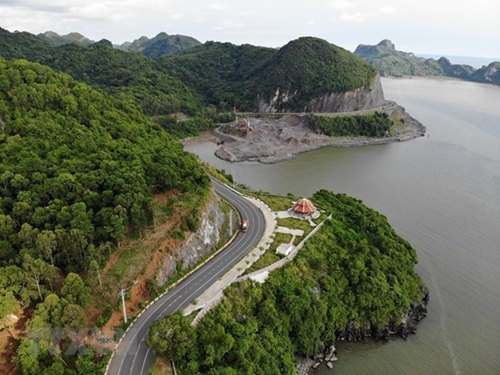The World Tourism Organization (UNWTO) has forecast that by 2030, people who travel abroad for visiting, health and religion purposes will make up 31% of the total tourists; for travelling, leisure activities and entertainment, 54%; and for professional purposes, 15%.
During the 2018-2028 period, tourism demand is expected to rise 4% annually, faster than the global economic growth pace. The Asia-Pacific region will welcome about 535 million international tourists in 2030, ranking first globally in this regard.
    |
 |
|
Cat Ba Island - one of the must-visit destinations in Vietnam |
Holiday-makers are also interested in traditional culture, natural values and innovation and high-technology.
It is noteworthy that medical tourism has become more popular. Responsible, eco and community-based tourism is inevitable to reach the target of sustainable development.
According to the UNWTO, the robust development of budget carriers will greatly benefit the tourism sector and spur the development of aviation tourism. Besides, tourists taking sea routes have also increased with modern and luxurious cruise ships.
The Fourth Industrial Revolution has greatly impacted tourism management and business and led to the formation of new tourism trends like smart and innovative tourism.
Unlike traditional tours, smart tourism targets interests of vacationers, while ensuring low cost, safety and convenience based on technological applications and the use of modern equipment as well as global data.
Future of tourism
The tourism sector has also experienced changes in the payment methods, from cash to non-cash ones.
The post-paid method has been favored by many holiday-makers and the booking of air tickets and hotels by smart phones increased sharply.
Digital technologies and data will dominate the growth in Asia-Pacific, with up to 80% of tours to be booked online and 87% of young people said smart phones are necessary for travelling.
Experts also said information technology and social network will be the future of tourism.
The expenditure structure of tourists has also changed significantly, from essential services like food, beverages and transportation in the previous years to shopping, travelling and entertainment.
In fact, the global tourism industry is experiencing the development of different trends such as self-designed, high-end, trekking and entertainment tours, among others. Given this, travel companies have to pay more attention to developing products to meet market demands.
In Vietnam, vacationers now prefer exploring mountainous areas and local culture instead of maritime tourism as in the past.
New-generation tourists have shown their responsibility for the environment. Therefore, they want to learn about special cultural values and the nature.
UNWTO said Southeast Asia will rank fourth globally in tourist attraction and Vietnam will be one of the 10 countries recording the fastest tourism growth.
Source: VNA